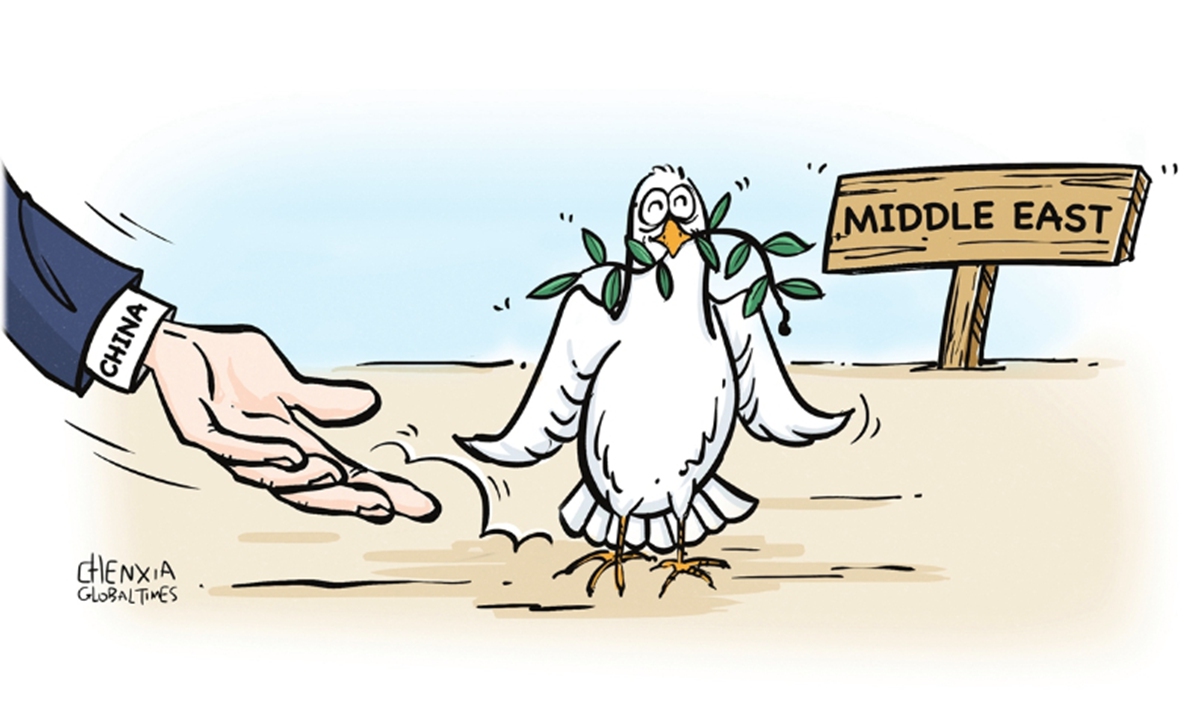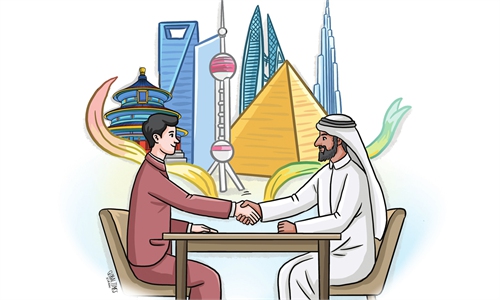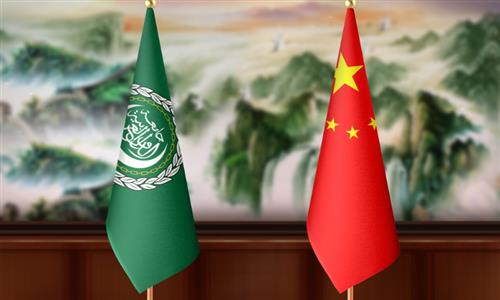
Illustration: Chen Xia/GT
Editor's Note:
This week, at the invitation of President Xi Jinping, Bahrain's King Hamad bin Isa Al Khalifa, Egypt's President Abdel Fattah El-Sisi, Tunisia's President Kais Saied, and the United Arab Emirates' President Sheikh Mohamed bin Zayed Al Nahyan are paying state visits to China and attended the opening ceremony of the 10th Ministerial Conference of the China-Arab States Cooperation Forum. The China-Arab cooperation has been expanding to more comprehensive areas and is expected to play an active role in regional and global governance with key focus on the ongoing Palestine-Israel conflict. Global Times (GT) reporters Chen Qingqing and Bai Yunyi interviewed Mohamed Amersi (Amersi), chairman of the Amersi Foundation to discuss in depth China's role in Middle East issues.
GT: In the context of continuing tensions in the Middle East, China holds the China-Arab States Cooperation Forum. What do you expect this meeting to achieve?
Amersi: I would hope that China really takes the lead in looking at the three files. The Palestinian file is absolutely the most important one at this stage and vital. I think that the coordination between China and the Arab states also sends a very powerful message to the rest of the world and especially to Israel.
We have not taken aside but we recognize now that we need to form the state of Palestine and allow it to be a member on the international stage. China is in a strong position because the West is all supporting Israel in a very strong way.
So China has the role of being an independent, unbiased mediator. It understands the cause of the Palestinian people, but this does not make it biased in the discussions. It should exercise this to act as a peace builder, just as it did with Iran and with Saudi Arabia last year.
GT: What do you make of the recent recognition by several European countries of Palestine as a sovereign state? How will these events affect the situation in Gaza?
Amersi: Three European states decided to recognize Palestine as a state, and Israel's reaction was naturally not very positive. The rest of the world has to decide now. It is at a crossroads. Finding a small ceasefire in the Israeli-Palestine conflict is one thing, but that is not actually going to solve anything.
We have to move away from managing conflicts to resolving conflicts. This is a very strong aspect. I believe that China really understood the difference between managing conflicts and resolving conflicts.
More than just three European states recognizing Israel will be needed. Ultimately, Israel has to be pushed to say that we also recognize the founding of the Palestinian state, because it is that recognition by Israel that will change the dynamics completely. Then the process of how to implement that should begin.
We should all work together to help find a permanent resolution to the Palestinian conflict by pushing all the members of the UN to now put in place a mechanism for a recognition of the Palestinian state, and especially to try to push Israel to do the same.
GT: Do you think the prospect of recognizing Palestine as a sovereign state is much higher now compared to the past?
Amersi: I think that it is much higher. This time, people are tired with this problem. 75 years have passed without a solution. The world is tired with this. It's not about taking some ideas. It is saying this has to end. Peace and prosperity have to be given to both states.
Over 140 votes were in favor of Palestine's membership for the UN. The UN Security Council cannot ignore the will of the world and the will of its member states. This has not been there before.


